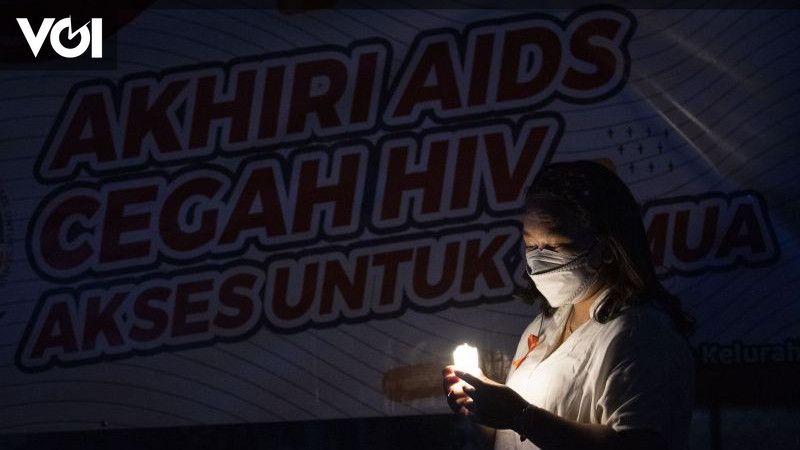JAKARTA – The government targets that there will be no more new cases of HIV infection, cases of death due to AIDS, and discrimination against people living with HIV/AIDS (PLWHA) by 2030.
“The ultimate goal of 2030 is to achieve Three Zero, namely no more new infections, no more AIDS deaths, and no discrimination against PLWHA,” said Director of Prevention and Control of Directly Infectious Diseases at the Ministry of Health, Siti Nadia Tarmizi in Jakarta, as quoted by Antara. Between, Thursday, December 2nd.
He is optimistic that this target can be achieved by implementing the 95-95-95 strategy, namely 95 percent of PLWHA know their HIV infection status, 95 percent of PLWHA undergo antiretroviral treatment (ARV) therapy, and 95 percent of PLWHA have suppressed viral levels in their blood.
Human immunodeficiency virus or HIV is a virus that destroys cells in the human immune system and AIDS or acquired immune deficiency syndrome used to describe a collection of symptoms of infection and disease that occurs when the immune system is damaged by HIV.
“If we get sick with HIV and then the severity gets worse then we will arrive at a condition we call AIDS. So the virus takes advantage of our weak body condition which then causes diseases,” said Nadia.
HIV is found in the body fluids of infected people. This virus is mainly transmitted through unsafe sexual activity. In addition, HIV can be transmitted through sharing needles or transmitted from mother to baby during pregnancy, birth, or breastfeeding.
HIV infection cannot be cured. However, there is already an effective drug therapy to support PLWHA live a longer healthy life.
Antiretroviral drugs are used to treat HIV attacks. These drugs work to stop the virus from replicating in the body, allowing the immune system to repair itself and preventing further damage.
Nadia emphasized the importance of strong collaboration between the central government, local governments, the private sector, and all elements of society in an effort to prevent and control the transmission of HIV/AIDS and achieve the target of HIV/AIDS prevention by 2030.
“Strengthening multi-stakeholder partnerships and of course innovations need to be done to ensure that efforts to tackle HIV/AIDS in Indonesia remain on track,” he said.
He hopes that this year’s World AIDS Day will be a momentum to strengthen his commitment to stop the transmission of HIV/AIDS.
Nadia said that in 2020 cases of new HIV infections were 47 percent lower than in 2010.
According to him, the number of people living with HIV in Indonesia in 2020 was recorded at 543,100 with an estimated 30,100 people with HIV infection who died and 10,103 reported deaths.
He added, as many as 149,883 people spread across 502 districts and cities had access to ARV treatment therapy services to cope with HIV attacks.
Nadia hopes that the number of new infection cases, morbidity and mortality due to HIV can be reduced during the COVID-19 pandemic.
– .


